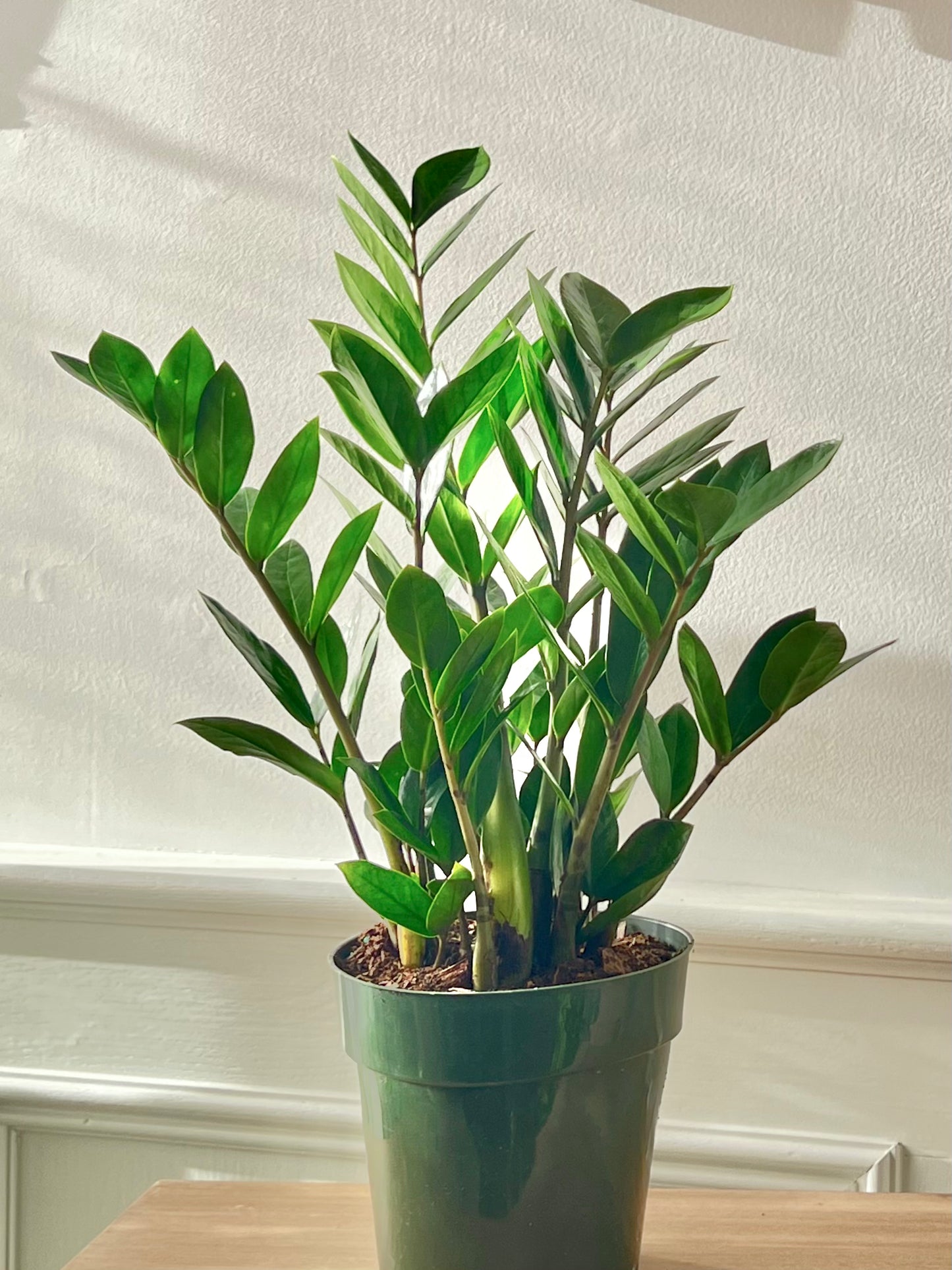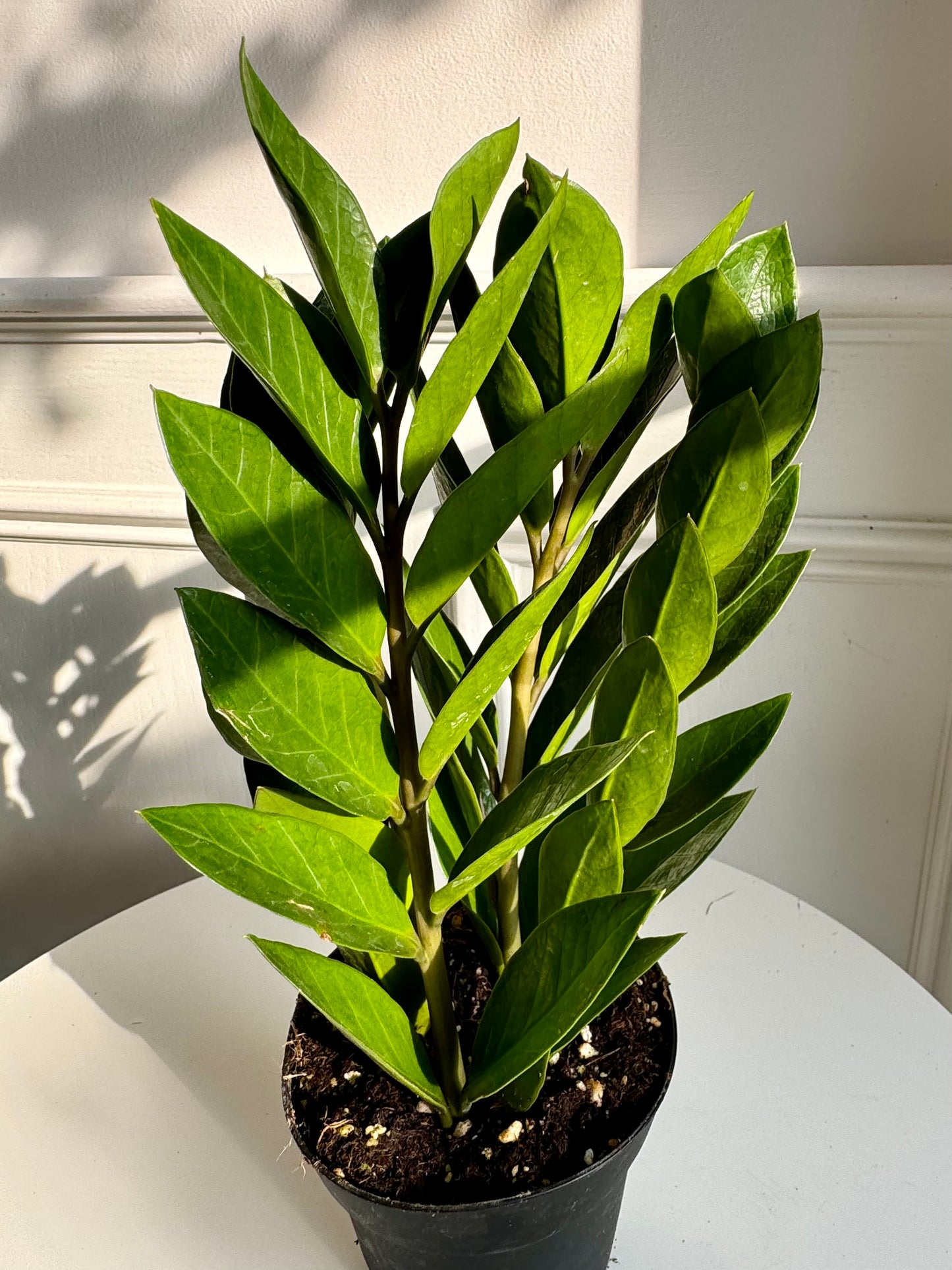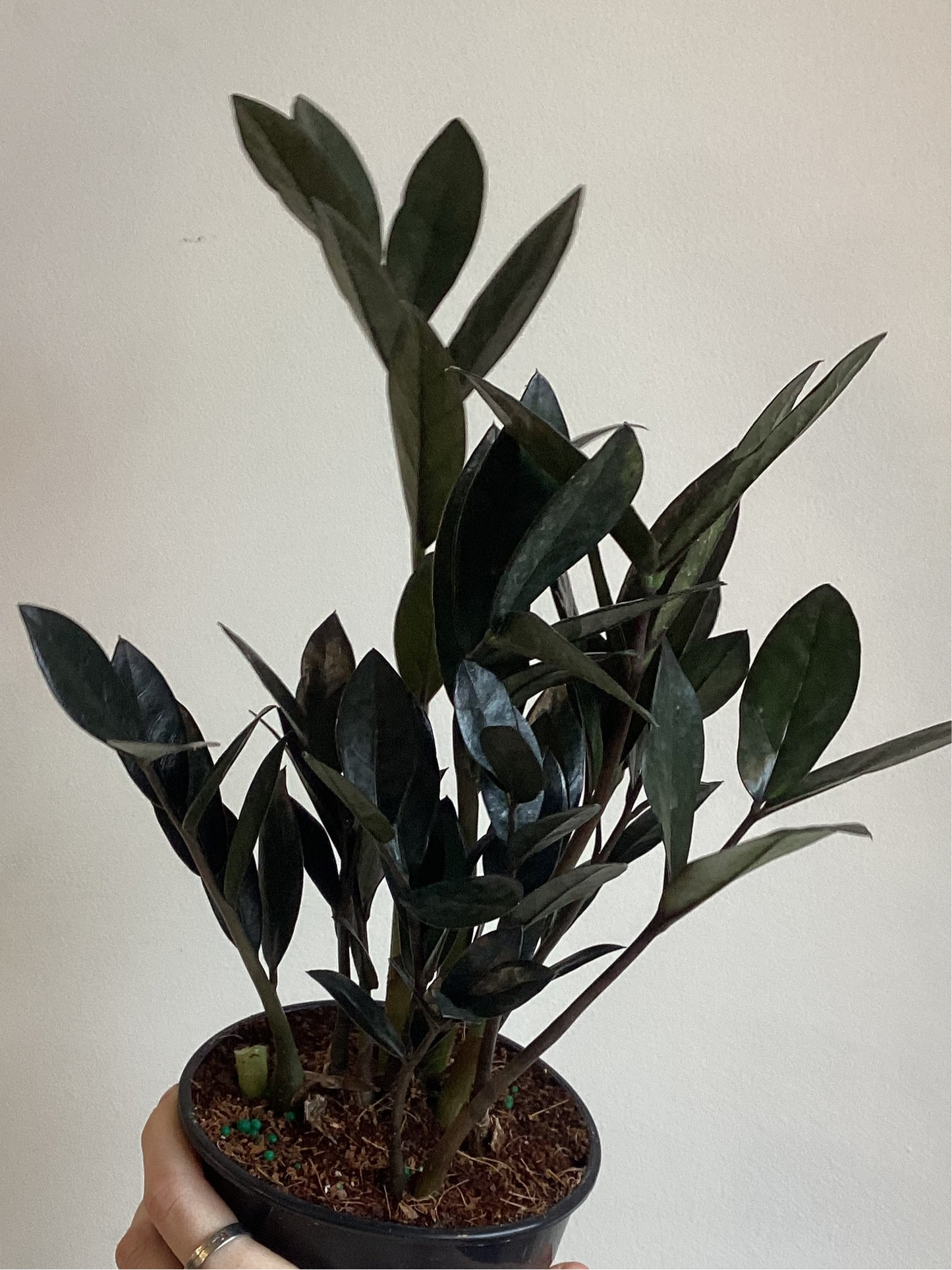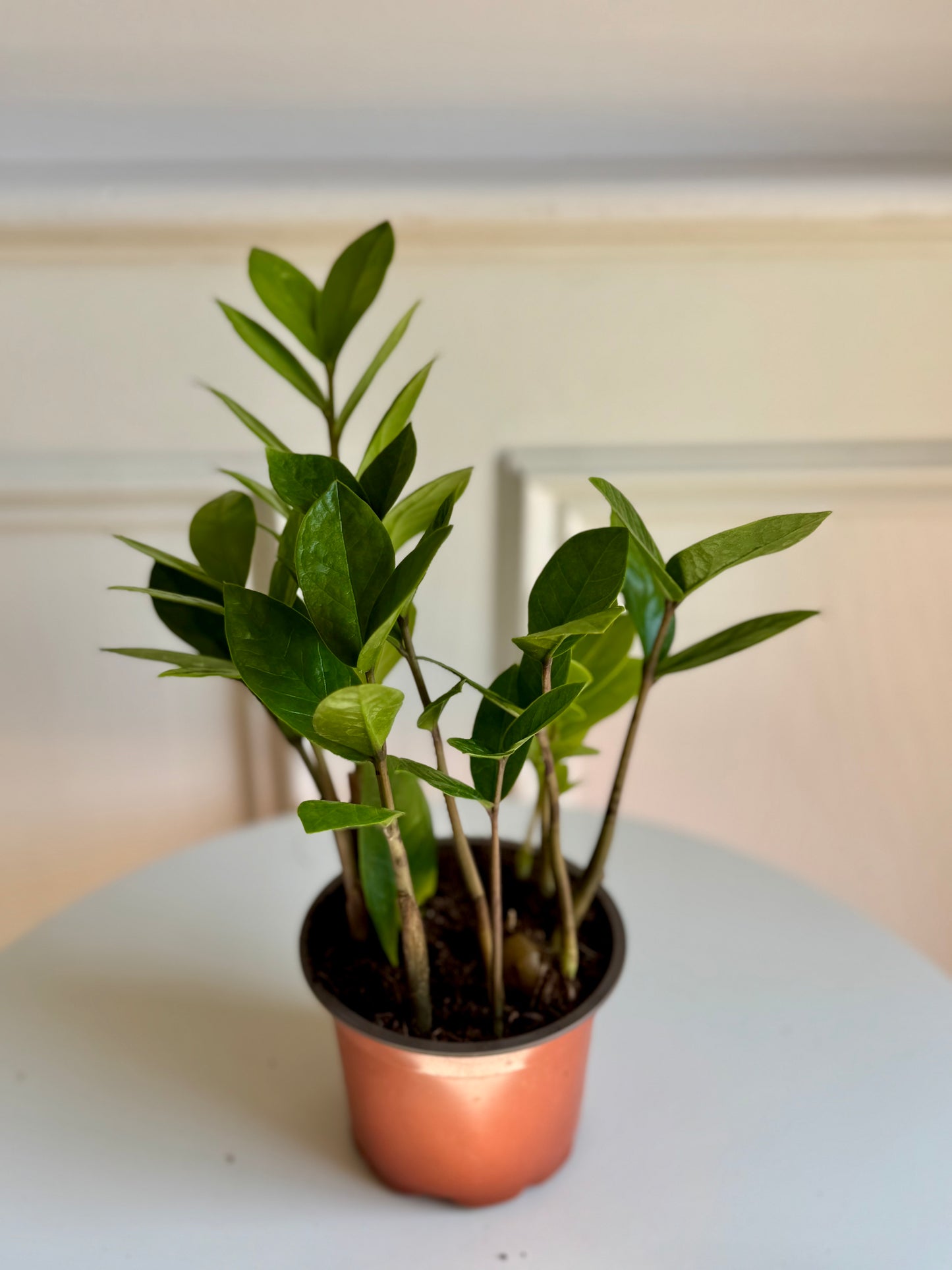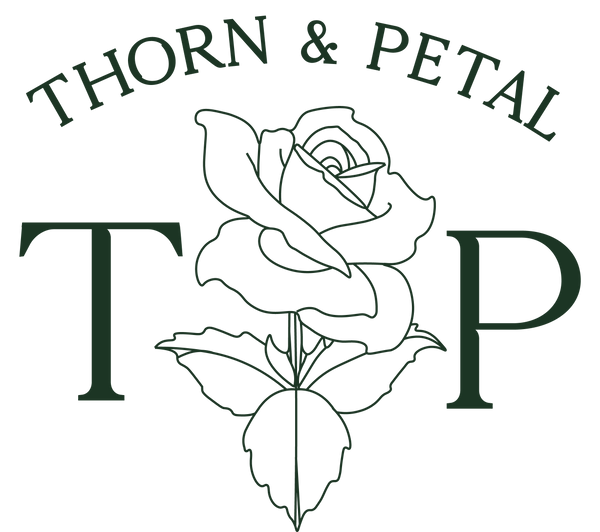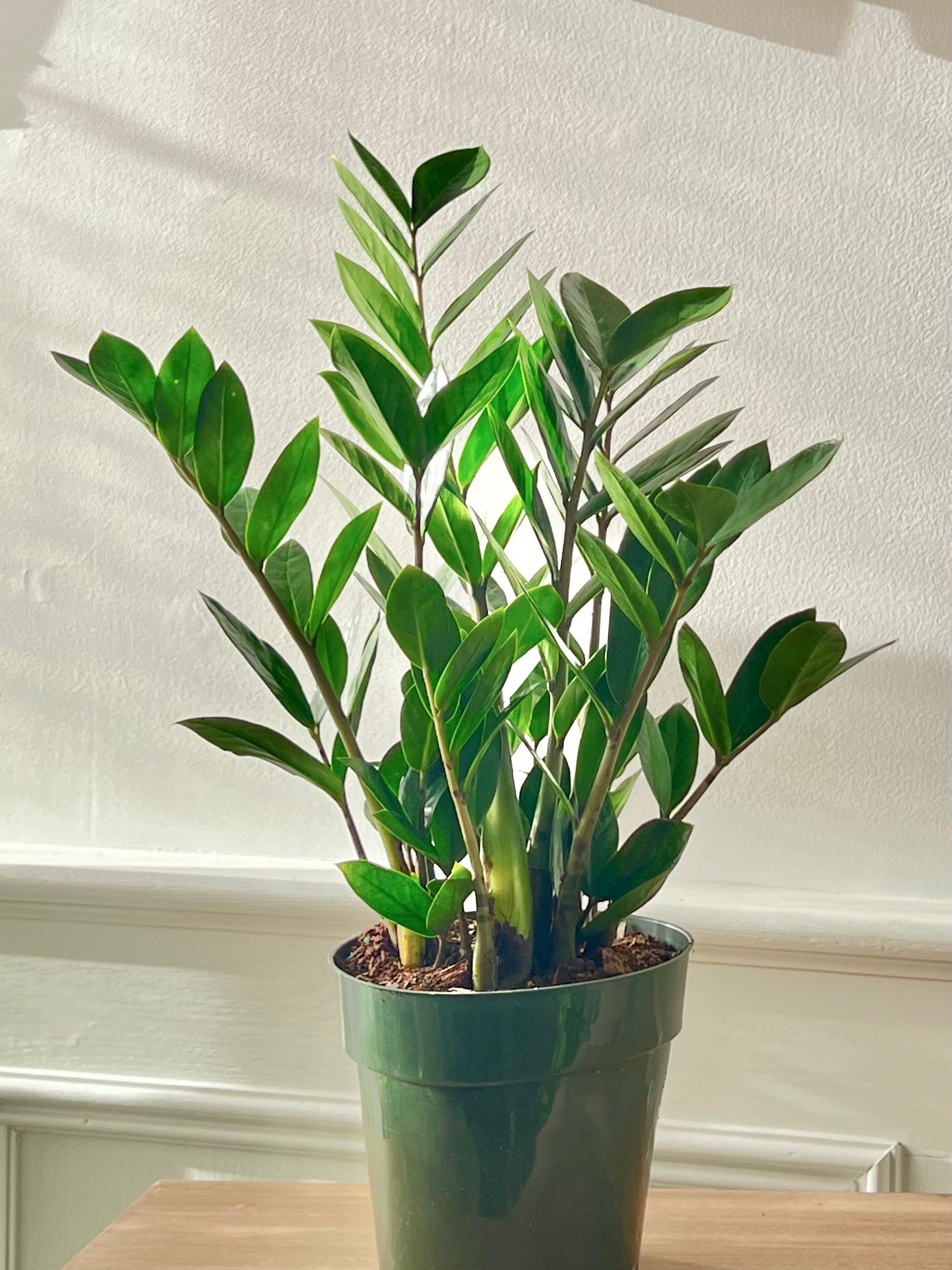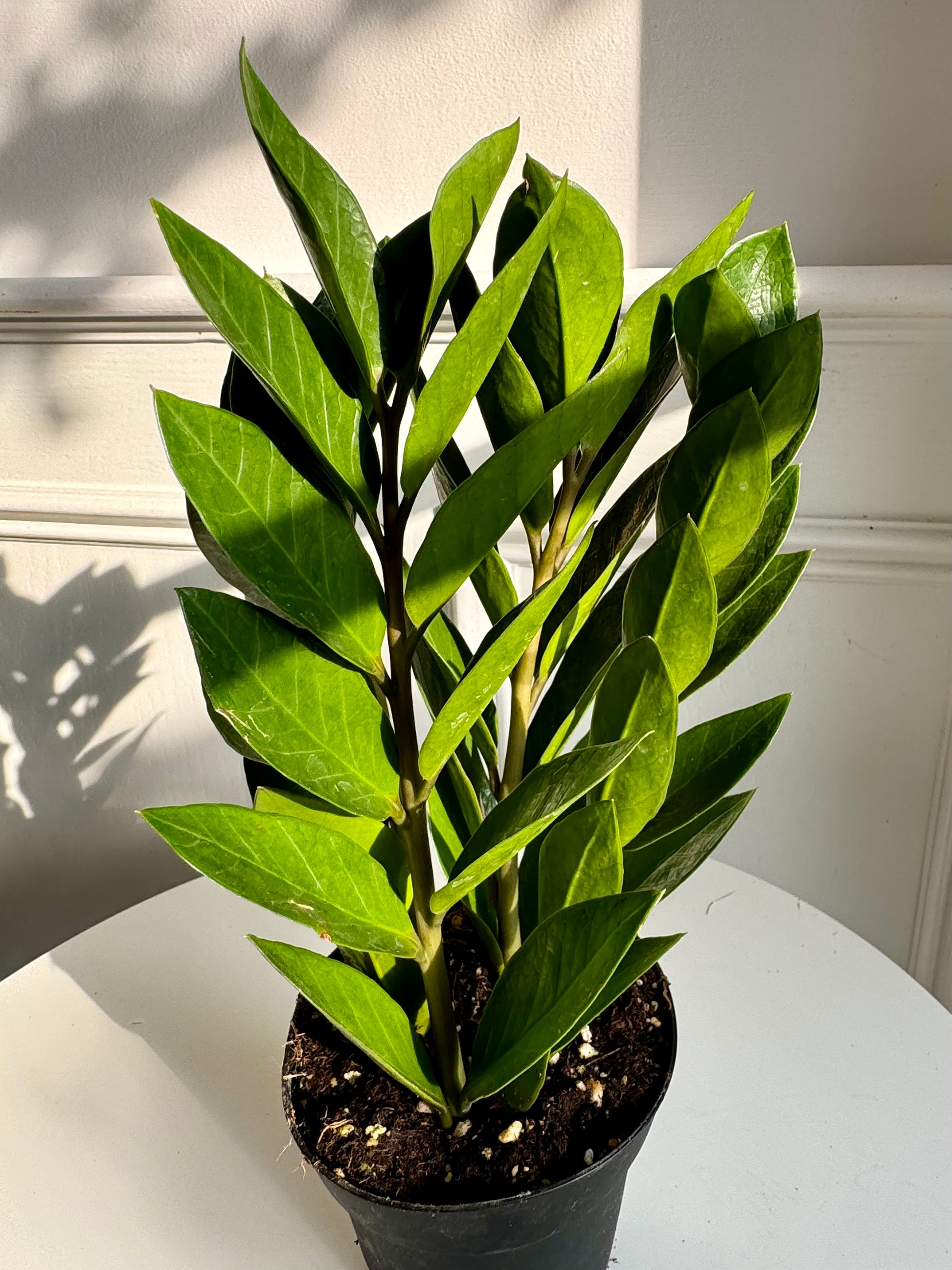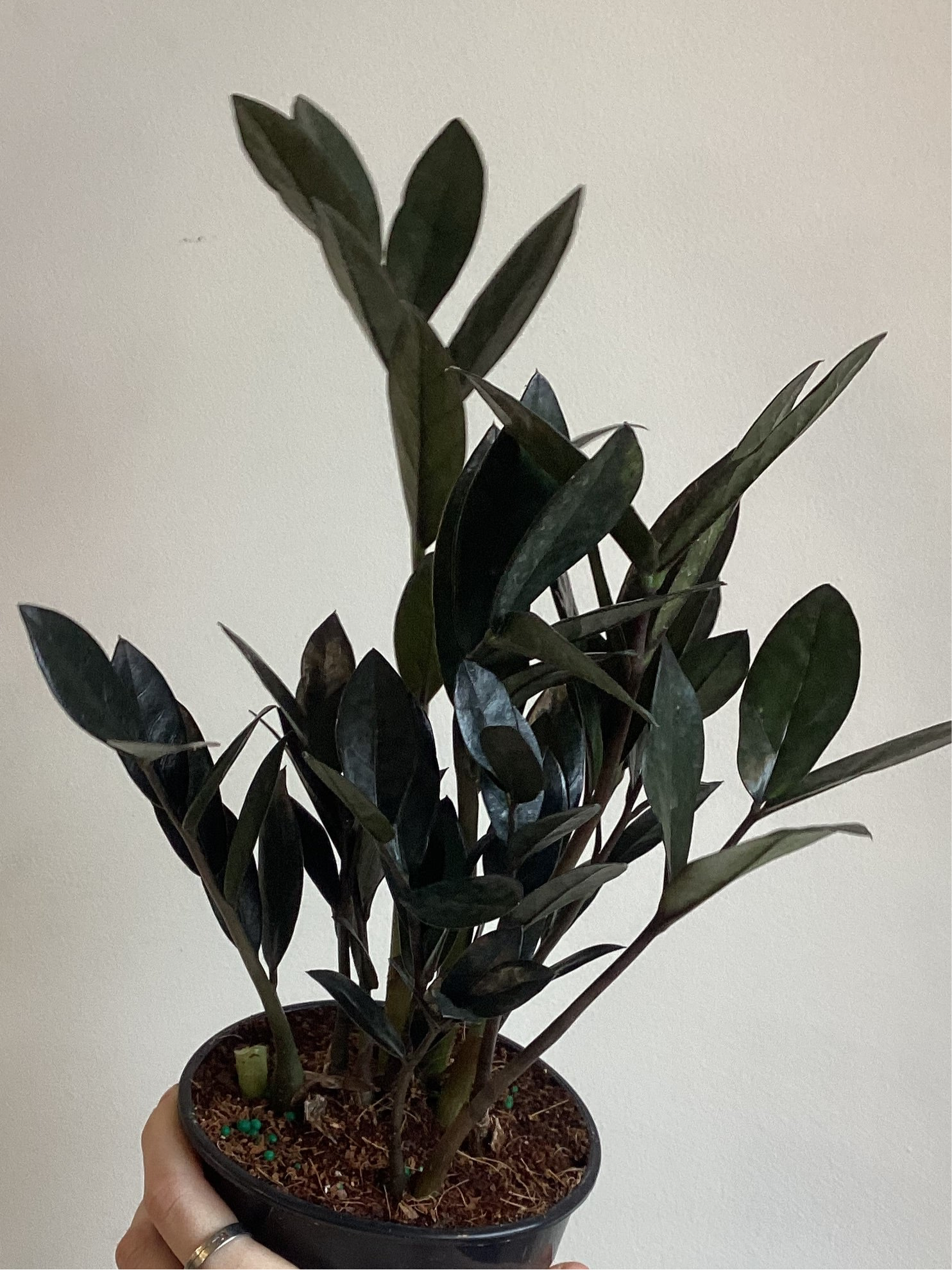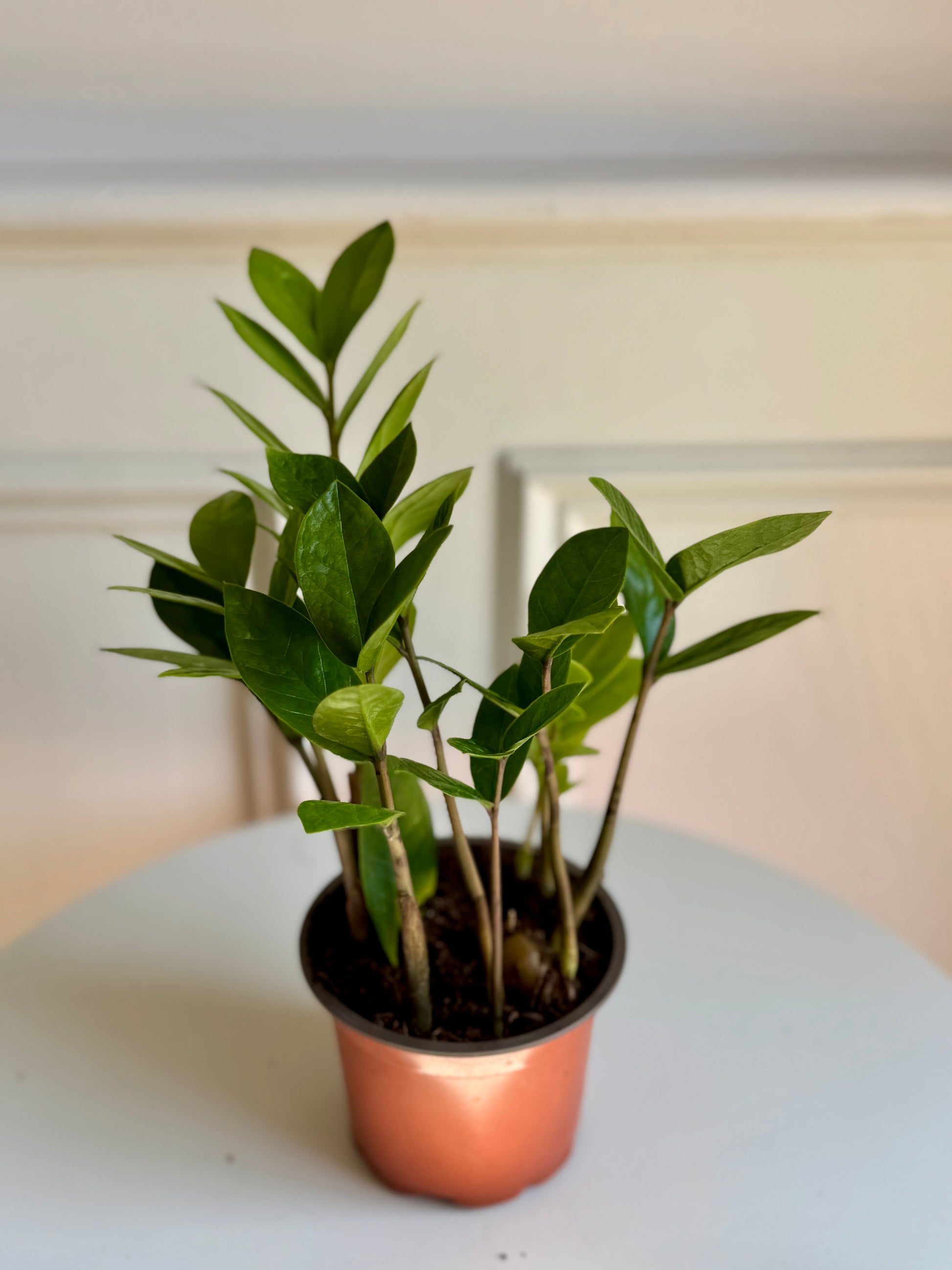ZZ Plant
ZZ Plant
Couldn't load pickup availability
ZZ plants, scientifically known as Zamioculcas zamiifolia, are popular houseplants appreciated for their attractive foliage, low maintenance requirements, and ability to tolerate low light conditions. Here's some information about ZZ plants:
Appearance: ZZ plants are characterized by their glossy, dark green, pinnate leaves that grow in a graceful, arching pattern. The leaves are composed of numerous small leaflets attached to a central stem, giving the plant a lush and tropical appearance. Some ZZ plant varieties may have variegated or lighter-colored foliage.
Growth Habit: ZZ plants have a slow to moderate growth rate and typically grow to be about 2 to 3 feet tall indoors, although larger specimens can reach up to 4 feet in height. They have a clumping growth habit, with stems emerging from a central rhizomatous root system. The plant's overall shape remains relatively compact, making it suitable for small spaces.
Native Habitat: ZZ plants are native to eastern Africa, specifically Kenya, Tanzania, and Zanzibar, where they grow in shaded areas of forests and grasslands. They are well-adapted to survive in low light conditions and periods of drought.
Care Requirements: ZZ plants are incredibly low-maintenance and adaptable, making them ideal for beginner and experienced plant enthusiasts alike. They thrive in low to moderate light conditions, although they can tolerate bright, indirect light as well. ZZ plants are drought-tolerant and prefer to dry out between waterings, making them suitable for forgetful or busy plant owners. They prefer average room temperatures and can tolerate fluctuations in temperature and humidity.
Air Purification: ZZ plants are known for their air-purifying qualities. While they may not be as effective as some other plants at removing toxins from the air, they can still help improve indoor air quality by absorbing carbon dioxide and releasing oxygen during photosynthesis.
Propagation: ZZ plants can be propagated through division or leaf cuttings. Dividing the plant involves separating the rhizomes and replanting them in separate pots. Leaf cuttings can be taken from mature plants and rooted in water or directly in potting soil.
Pet-Friendly: ZZ plants are considered non-toxic to pets, including cats and dogs. However, ingesting any plant material can still cause mild gastrointestinal upset in pets, so it's essential to keep them out of reach of curious animals.
Overall, ZZ plants are versatile, resilient, and visually striking houseplants that can thrive in a variety of indoor environments. With their glossy foliage and low maintenance requirements, they make a fantastic addition to any indoor plant collection.
Share
